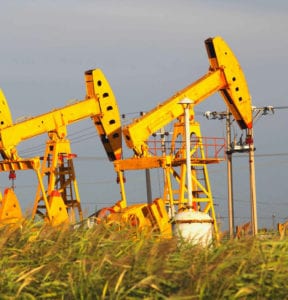HYDRAULIC FRACTURING RESEARCH
In April 2013, Berkeley Law released a report on hydraulic fracturing (“fracking”) in California, focusing on wastewater and potential water quality impacts. The report, Regulation of Hydraulic Fracturing in California: A Wastewater and Water Quality Perspective, is an independent analysis produced by Berkeley Law’s Center for Law, Energy & the Environment (CLEE) through its new initiative, the Wheeler Institute for Water Law & Policy (Wheeler Institute).
Oil and gas producers have used hydraulic fracturing (“fracking”) in California for many years. What is new, and potentially alarming, are projections of dramatically increased fracking activity in California brought on by the availability of new techniques. Fracturing has significant potential impact on water quality, and other aspects of water systems. The report focuses on the set of risks related to wastewater from fracking and its attendant activities, and its potential impacts on groundwater and surface water resources in California. Also summarized in the report are the relevant regulatory, legislative, and legal developments, along with potential future actions.
Download the Report:
Regulation of Hydraulic Fracturing in California: A Wastewater and Water Quality Perspective
For More Information:
Contact Michael Kiparsky, Director, Wheeler Water Institute, Center for Law, Energy & the Environment
Blog Posts
- As Oil by Rail Gains Momentum, Is California On Track to Protect Human Health and the Environment?
- Offshore Fracking Battles Brewing in the Golden State
- State Releases New Fracking Regulations Amid SB 4 Criticism
- Hydraulic Fracking in California: New Report Addresses Wastewater and Potential Water Impacts
- U.S. Bureau of Land Management Violated NEPA When Selling Oil and Gas Leases in California
- Fracking Lawsuit Filed in California Against State Agency
BERKELEY LAW ENVIRONMENTAL LAW SOCIETY (ELS): FOIA PROJECT
The Berkeley Law Environmental Law Society submitted two Freedom of Information Act (“FOIA”) requests to the Environmental Protection Agency (“EPA”) in 2013 concerning hydraulic fracturing exceptions, exemptions and permits.
The first request was for: Copies of all reports, records, letters, notes or memoranda related to the EPA wastewater discharge exception at 40 C.F.R. 435.50-.52 that were released by EPA to National Public Radio (“NPR”) through FOIA requests in 2011 or 2012. These FOIA requests were referenced in the November 15, 2012 NPR story by Elizabeth Shogren entitled “Loophole Lets Toxic Oil Water Flow Over Indian Land,” available at http://www.npr.org/2012/11/15/164688735/loophole-lets-toxic-oil-water-flow-over-indian-land.
The second request was for: Copies of all reports, records, letters, notes or memoranda pertaining to permits issued under the EPA wastewater discharge exception at 40 C.F.R. 435.50-.52 for wastewater discharges on the Wind River Reservation in Wyoming and other Indian reservations in Colorado, Montana, North Dakota, South Dakota, Utah, and Wyoming.
FOIA Request 1 – Rule Development:
- R1 – 44 FR 22069 (1979) – Final Onshore O&G ELG
- R2 – Letter Re AMOCO NPDES Permit Application
- R3 – Letter From CO OGCC Suggesting Changes to Beneficial Us
- R4 – Memo Requesting Changes to Beneficial Use SubCat
- R5 – Telephone Record Re Applicability of Beneficial Use
- R6 – Oil Treater Unit Survey From WY DEQ
- R7 – Memo Requesting Review of WY Regs
- R8 – Letter From WY DEQ Requesting Changes to Beneficial Use
- R9 – Letter From WY DEQ With WY Regs
- R10 – 41 FR 44942 (1976) – Interim Final Onshore O&G ELG
- R11 – Development Document O&G ELG – 1976
FOIA Request 1- CBM Records
- EPA- Technical Support Document for the 2006 Effluent Guidelines Program Plan
- EPA- Public Record for the 2006 Effluent Guidelines Program Plan
- EPA- United States Environmental Protection Agency
- R4 – 2010 Effluent Guidelines Plan
FOIA Requests